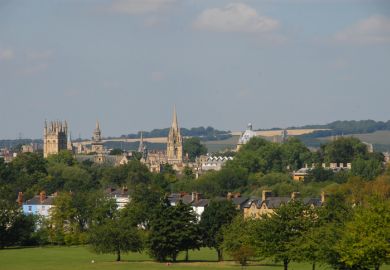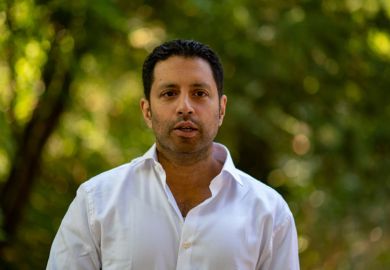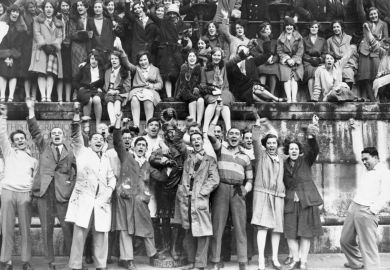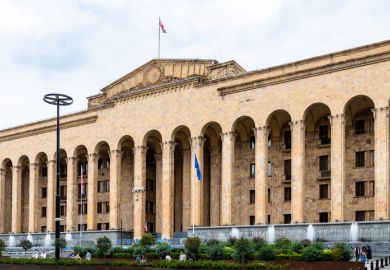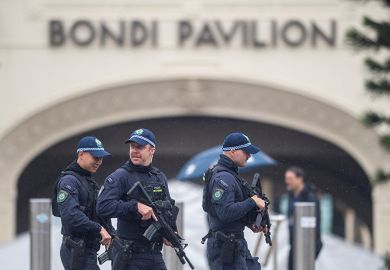Even if you disagree with Kathleen Stock’s gender-critical views, it’s hard not to respect the poise and resolve she showed to speak at the Oxford Union. Few academics will ever face protests, online vitriol and wall-to-wall media scrutiny for wishing to express their beliefs to a student audience.
But it is important that scholars push back on her assertion that universities are becoming “propaganda machines for a certain type of view” on transgender issues, or that academics have been cowed into silence on such topics.
As a lecturer at one of Professor Stock’s alma maters – the University of St Andrews – for almost 20 years, I can only say that this is not my experience. Nor have I heard any of my colleagues complain about their academic freedom being limited in any way.
This is not because I avoid controversial topics. My teaching and research focus on global legal and ethical issues in both contemporary and historical contexts. And, yes, Professor Stock’s writings have featured in my teaching.
On one module on the history of political thought, a different thinker is discussed each week, sometimes a historic one, sometimes a contemporary one. Students are asked to read the thinker, debate the issues – authority, rights, rules, law, violence, wealth, nature, culture and gender – and write essays about these themes.
This year we discussed Professor Stock’s gender-critical views, including her opposition to gender-identity theory, while also considering the work of feminist thinker Judith Butler, whom Stock sees as an advocate of gender-identity theory.
Students in my module discussed the issue of trans rights alongside feminism and gender inequalities. Not one student objected to Professor Stock’s inclusion in this context and I found the conversations interesting and productive.
Another module I teach with a colleague is called Speculative Fiction and Global Politics, which introduces students to contentious global issues through the reading and watching of fictional works of science fiction and fantasy. One of the weeks in this module also focuses on gender, specifically Ursula K. Le Guin’s novel The Left Hand of Darkness and Margaret Atwood’s The Handmaid’s Tale.
The first book is based in a world in which the inhabitants can easily change genders, which leads to radically different ways of seeing politics and society. The second introduces a world in which women have become vessels trapped in a patriarchal world where their sole task is to bear children. The two novels represent two different ways of seeing gender; the first a more “gender-fluid” world of transitioning, the second a more traditional feminist critique of conservative efforts to control women’s bodies.
In the lecture, I also mentioned Stock and Butler and the controversies connected to the legal recognition of transgender rights. We discussed the Office of the United Nations High Commission for Human Rights’ campaign, Free and Equal, which seeks to protect the rights of LGBTQ individuals around the world and highlights the “onerous preconditions before they can obtain legal recognition of their gender identity” in many parts of the world.
The discussions for this week were robust and fascinating. Once more, no student objected to the discussion and I know I learned a great deal from them about how to interpret these texts.
Perhaps most importantly, not every student agrees with me. Indeed, I encourage them to disagree with me. As I say to them: I know what I think; I want to know what you think. This is something that the recent news articles and the wider debate about higher education and controversial topics seem to ignore. Teachers of politics and international affairs generally do not try to inculcate particular views into students, but work to create an atmosphere in which students can think critically and carefully about what it means to be a citizen in the contemporary world.
Articles in the news that make claims about “woke” universities or the collapse of liberal ideas of free speech often reflect the views of people who have either had bad teachers or forget what it is like to be taught difficult issues. Political issues are inherently controversial, and the goal of a teacher of politics is to create a space in which different positions can be articulated, defended and evaluated.
Recently a Sunday Times article used a Freedom of Information request to highlight my university’s spending on those with a specific focus to promote diversity. The article claimed that more money should be spent on protecting freedom of speech. But I’m not quite sure how money like that would be spent. What kind of person would we hire to do this job? Would that person tell me what to teach in the classroom? Would that person tell me what to research or teach to ensure I am promoting freedom?
St Andrews is not perfect. Like many other universities, it faces many challenges and will continue to do so. But in my experience it is a place of free inquiry and debate around some of the most difficult and contentious issues facing society today.
While some might seek to close down debate on campus, the overwhelming majority of academics are committed to ensuring robust discussion continues on campus.
Tony Lang is professor of international relations at the University of St Andrews.
Register to continue
Why register?
- Registration is free and only takes a moment
- Once registered, you can read 3 articles a month
- Sign up for our newsletter
Subscribe
Or subscribe for unlimited access to:
- Unlimited access to news, views, insights & reviews
- Digital editions
- Digital access to THE’s university and college rankings analysis
Already registered or a current subscriber?

